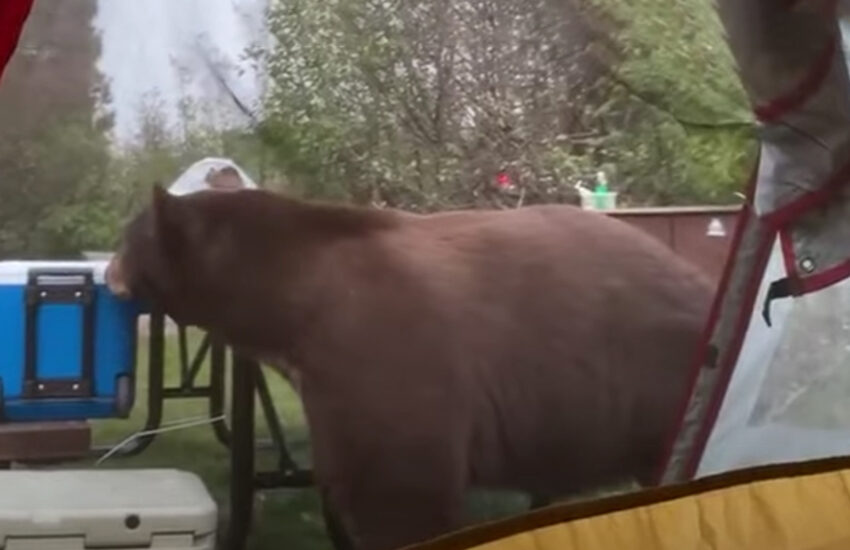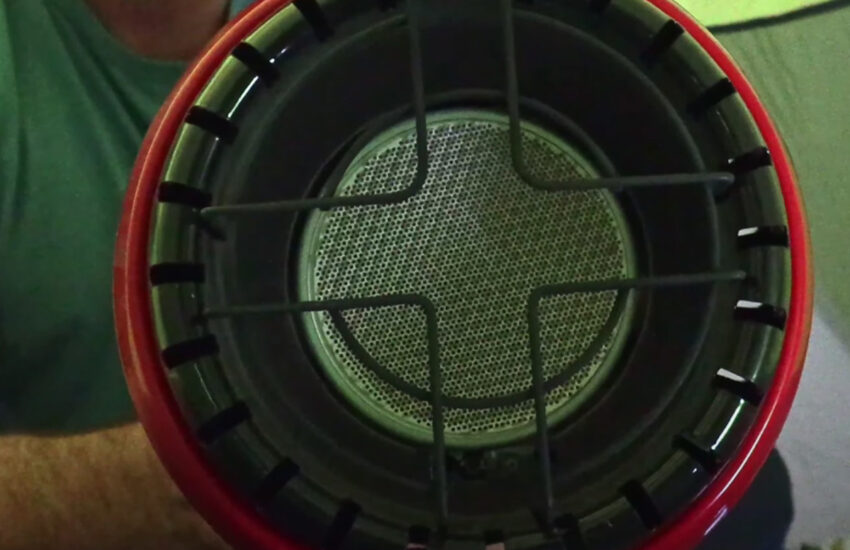Are Camping Tents Machine Washable: 7 Reasons [Solved]
I once made the mistake of machine-washing my camping tent. It taught me that this can compromise the seams and water resistance. The detergents and agitation damaged the fabric coatings, affecting its ability to repel water. The fabric stretched and ripped, and the mesh got damaged due to rough washing machine cycles.
Most camping tents are not machine washable. I understood the importance of never cleaning or drying my tent. I discovered that these machines, particularly top-loading washers with an agitator, could cause damage, such as stretching or tearing the fabric, mesh, and seams. Similarly, dryers could generate excessive heat that could harm the tent material .
In that blog post, I shared some on whether camping tents were machine washable and discovered helpful tips and factors I had to consider before buying a camping tent.
Are Camping Tents Machine Washable: 7 Factors I Had To Consider
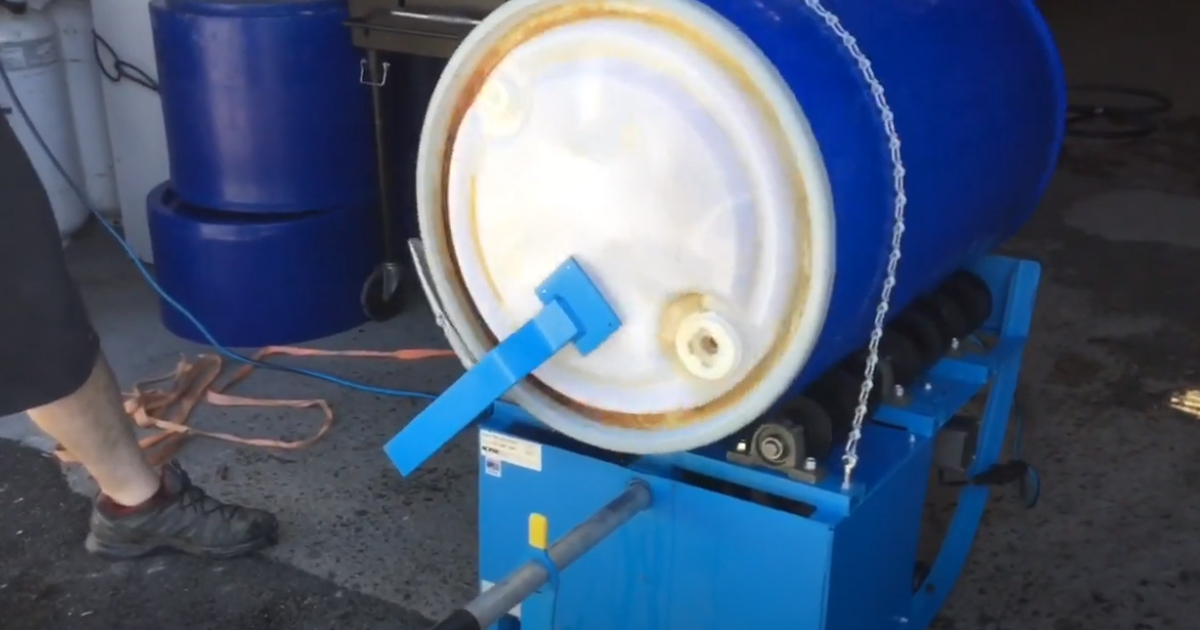
I remember the day I washed my camping tent. It was a decision that required careful consideration of several aspects. Here’s what I learned:
The Fabric Material
The first thing I considered was the fabric material of my tent. Different materials react differently to washing, and it’s crucial to understand this before proceeding. For instance, nylon and polyester, common tent materials, can withstand gentle hand washing but may be damaged in a machine wash.
Tent’s Age
The age of the tent was another factor I had to consider. Older tents might not withstand the rigors of washing, especially machine washing. The fabric becomes more fragile with age, and the waterproof coating might have worn off, making it more susceptible to water damage.
The Tent’s Condition
I also evaluated the condition of my tent. Was it heavily soiled or just lightly dirty? A light dusting or minor stains can often be spot-cleaned, while a heavily soiled tent might require more thorough cleaning.
Identifying the Type of Tent
The type of tent also played a role in my decision. Smaller, backpacking tents might be easier to clean by hand, while larger, family-style tents could pose a challenge because of their size and weight.
Washing Label Instructions
One of my most important steps was reading the instructions on the washing label. These instructions provided valuable information on safely cleaning the tent without causing damage.
Right Detergent and Cleaning Solutions
Finally, I had to choose a suitable detergent and cleaning solution. Regular laundry detergents can damage the waterproof coating on the tent fabric. So, I opted for a mild, unscented soap or a cleaner specifically designed for tents.
Tents are machine washable: 4 Ways
As someone who enjoys camping, I never considered washing my tent in a washing machine until I noticed a musty smell. So, I researched whether camping tents can be machine washed and discovered they can be done correctly. Below are some tips I learned along the way.
Preparing the Tent
Before flying your tent, preparing it properly to avoid damaging the fabric or the zippers is essential. Follow these simple steps:
- You can remove any loose dirt or debris from the tent by shaking it or using a soft-bristled brush.
- Close all the zippers on the tent to prevent them from snagging during the washing process.
Choosing the Right Detergent
Selecting a suitable detergent is crucial to avoid ruining your tent’s fabric or waterproof coating. Here are some tips to help you choose the best detergent:
- Do not use harsh chemicals such as bleach, fabric softener, or any brightener detergent. These can break down the tent’s waterproof coating and weaken the material.
- Use a gentle or eco-friendly detergent that is designed for synthetic fabrics. Look for detergents free of dyes and perfumes, which may cause an allergic reaction.
Loading the Washing Machine
For loading your tent in the washing machine, there are some rules you should follow:
- The washing machine should not be overcrowded because it can damage the fabric or strain the zippers.
- Select a delicate cycle and use cold water to prevent the shrinking or melting of the fabric.
Drying the Tent
Drying your tent is just as important as washing it. Here are some tips:
- Avoid exposing your tent directly to sunlight, which will fade or weaken the material.
- Low heat helps prevent shrinkage and melting when drying the tent.
3 Best Alternative Methods for Cleaning Your Camping Tent
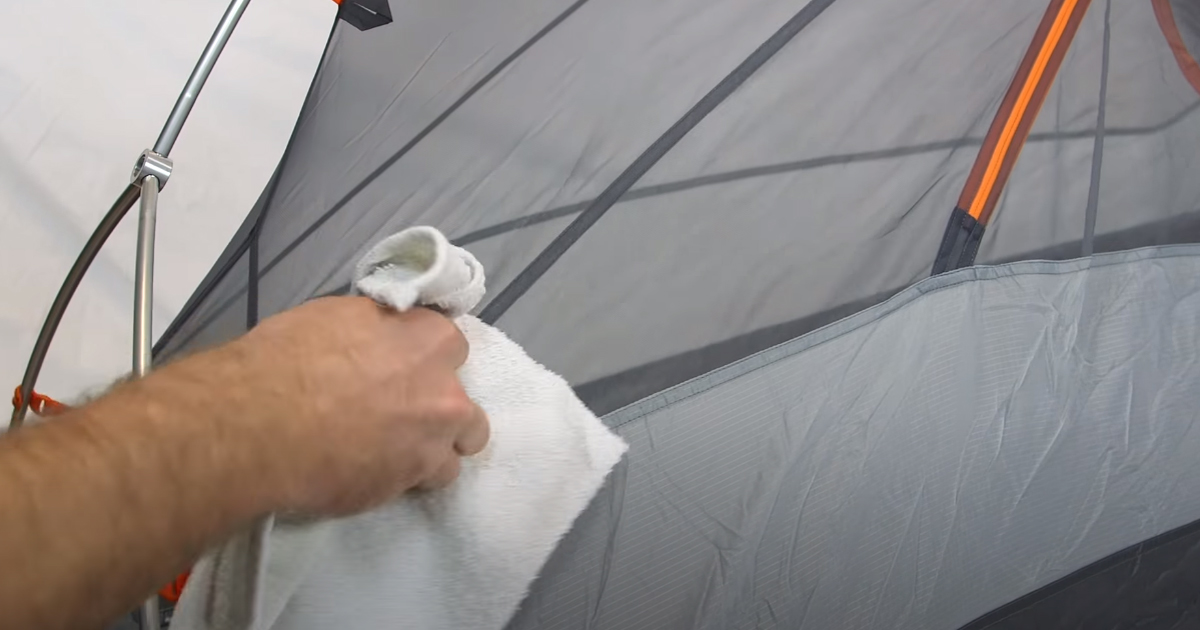
As an experienced camper, I know firsthand the importance of proper cleaning and maintaining a camping tent. While some may believe throwing their tent into a washing machine is the quickest and most efficient way to clean it, this could cause more harm than good. Hand-washing your camping tent is the safest and most effective way to ensure it remains durable and long-lasting.
Hand-Washing My Camping Tent
I remember cleaning my tent using a mild detergent. It was a safe and effective method, and here’s how I did it:
- Using a Soft-Bristled Brush: I started using a soft-bristled brush to clear the tent of any loose dirt or debris. I gently brushed in a circular motion, ensuring not to use too much force, which could damage the tent’s fabric.
- Rinsing and Air-Drying: I rinsed the tent with a hose. It was important to rinse thoroughly to remove all the soap. After rinsing, I hung it in a well-ventilated area, such as a clothesline, and let it air dry completely.
Spot-Cleaning for Specific Stains
While hand-washing with mild detergent improved cleaning, some stains required more attention. Here’s how I dealt with
them:
- Mildew Stains: To remove mildew stains, I mixed equal parts vinegar and water and applied it with a soft brush. I let the solution sit for 30 minutes, then rinsed it with water and let it air dry.
- Tree Sap or Pitch: For tree sap or pitch, I applied rubbing alcohol to a cotton ball and rubbed the affected area. Then, I rinsed it and aired it out.
Protective Measures for Future Camping Trips
Prevention is always better than cure, and that’s true for cleaning camping tents. Here are some preventative measures I took for future camping trips:
- Using a Ground Tarp: I used a ground tarp underneath the tent to protect my tent from dirt and debris. This also helped to prevent moisture from seeping into the tent.
- Regular Maintenance and Storage: I dried and stored my tent correctly after each camping trip. This helped prevent mold and mildew from forming and kept my tent in good condition for future use. It was a learning experience that has served me well on many camping adventures since.
4 Camping Tent Care Tips
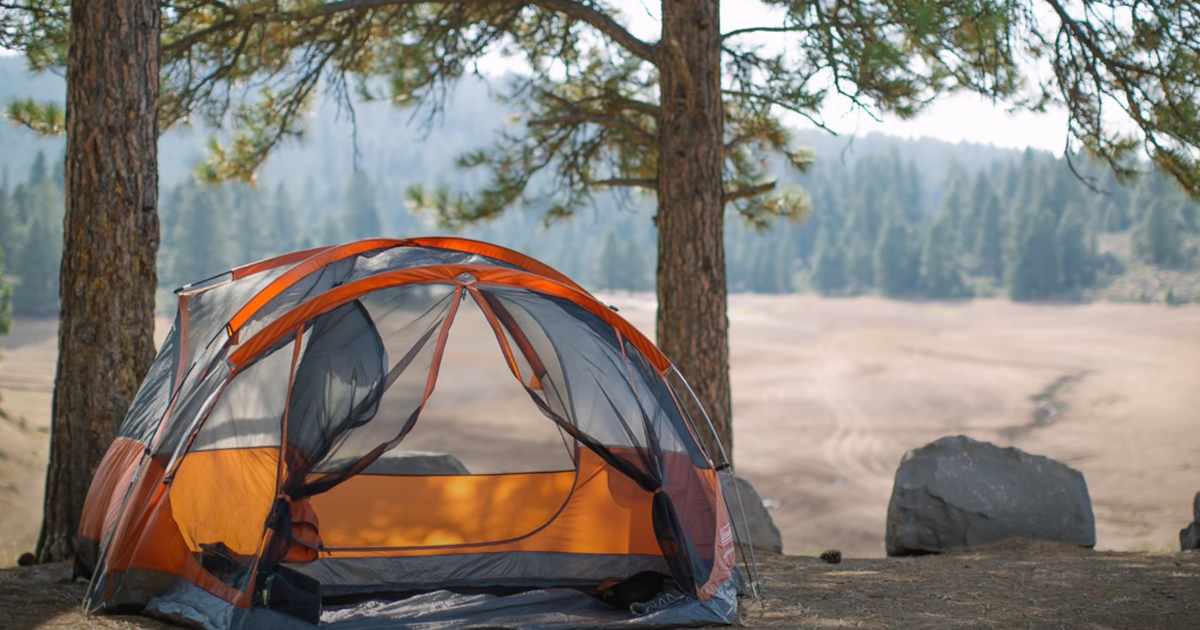
As an avid camper, I know how important it is to take care of your camping gear, especially your tent. One question that many people have is whether camping tents are machine washable. I will provide all the information you need to care for your camping tent.
Preparing the Site
- Choosing the right location: I needed to select the correct location when I set up my tent. I looked for level ground that was relatively free of rocks and debris, and I avoided setting up my tent at the bottom of a hill where rain could collect and flood my tent. I chose a spot that provided some shade during the hottest parts of the day.
- Protecting the Floor of the Tent: To prevent damage to the floor of my tent, I considered using a tent footprint. This was a ground cloth that went beneath my tent to protect it from rocks, twigs, and other sharp objects on the ground. Not only did a footprint protect the floor of my tent, but it also made it easier to clean my tent after my trip.
- Easy Ways to Pitch the Tent Without Damaging It: To pitch my tent, I needed to use the manufacturer’s instructions carefully to avoid damaging it. I ensured it was staked down properly and used guylines when necessary to provide additional stability. I used caution when inserting tent poles and avoided putting too much pressure on the tent fabric as I pitched it.
Tent Care During Use
- Keeping the Tent Dry: One of the most important things I did to care for my camping tent was to keep it dry. If my tent became wet, it could lead to the growth of mold and mildew, which could eventually damage the fabric and reduce the lifespan of my tent. To keep my tent dry, I considered using a rain fly even in dry weather and opened windows and doors to increase ventilation.
- Proper Ventilation: Speaking of ventilation, ensuring that my tent had adequate airflow throughout my trip was necessary. This helped keep my tent dry reduced condensation inside the tent, and made for a more comfortable sleeping environment.
- Keeping Food and Drinks Away from the Tent: To avoid attracting unwanted wildlife to my camping site, it was essential that I kept food and drinks away from my tent. This prevented animals from trying to enter my tent in search of a snack, which could be dangerous for both me and the animal.
- Preventing Damage from Pets or Wildlife: If I brought a pet on my camping trip, keeping them under control and away from my tent was important. I considered using odor-proof bags to store food and other items that may attract wildlife.
- Avoiding Sharp Objects Inside the Tent: Finally, it was necessary to avoid bringing sharp objects inside my camping tent. This included knives, scissors, and other tools that may accidentally puncture the fabric of my tent.
Tent Care During Break Down
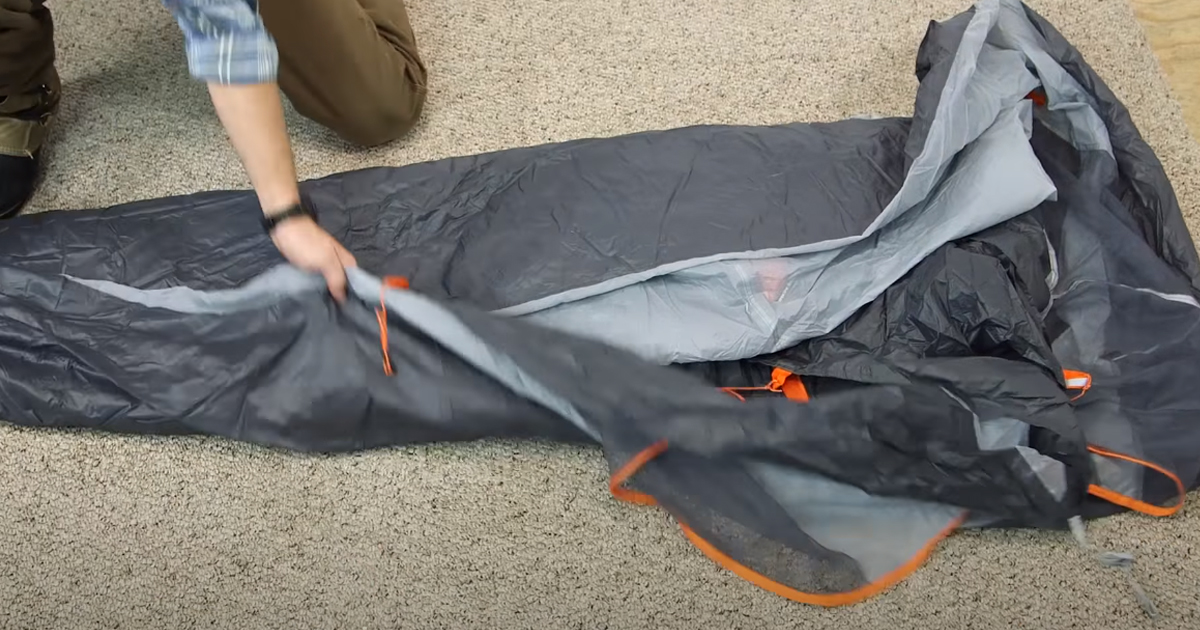
- Cleaning the Tent Before Packing It Up:Once my trip ended, cleaning my camping tent before packing it up for the next adventure was essential. I used mild soap and warm water to wipe down the tent’s exterior and let it air dry before packing it.
- The Proper Way to Pack the Tent: When packing my tent, I followed the manufacturer’s instructions to avoid damaging the fabric. I tried to avoid folding the tent in the same place every time, as this could cause creases that may eventually lead to tears in the fabric.
- Tips for Storing the Tent Over Long Periods: If I planned on storing my camping tent for an extended period, I considered keeping it in an excellent, dry location. This prevented mold and mildew from forming on the fabric, which could cause damage.
Tent Care at Home
- Cleaning the Tent After a Trip: After my camping trip, it was necessary to clean my tent thoroughly to remove dirt, debris, or other contaminants that might have been present on the fabric. After gently wiping down the tent’s exterior with soap and water, I allowed it to air dry before storing it.
- The Best Way to Wash a Camping Tent: While some camping tents might have been machine washable, I was recommended to wash my tent by hand to avoid damaging the fabric. I simply filled a large basin or tub with warm water and added a mild soap to do this. I gently scrubbed the tent fabric with a soft brush, rinsed thoroughly, and hung the tent to air dry.
- Drying the Tent Properly: When drying my camping tent, avoiding using a dryer or other high-heat source was essential. Instead, I simply hung the tent in a well-ventilated area and let it air dry.
Conclusion
The care and maintenance of my camping tent were crucial if I wanted to extend its lifespan and get the most out of my investment. Although some camping tents were machine washable, it was essential to read the manufacturer’s instructions carefully before tossing my tent into the washing machine.
Hand washing my camping tent with mild soap and warm water was the safest and most recommended method for cleaning my tent, causing no damage. With proper care and maintenance, my camping tent should last for years, providing me with countless memorable camping experiences.
FAQs
What Can I Do To Prevent My Camping Tent From Getting Dirty?
Practicing good site selection and tent setup is one way to keep your camping tent clean. Avoid pitching your tent on dirty ground, and use a tarp or groundsheet to protect the tent floor. Keep drinks and food away from the tent to prevent spills and stains, and store your camping gear properly when not in use.
![7 Factors & 4 Ways to Wash Camping Tents [Real Advice From Experience]](https://tentgirl.com/wp-content/uploads/2024/01/Are-Camping-Tents-Machine-Washable-7-Reasons-Risks-Solutions.jpg)
